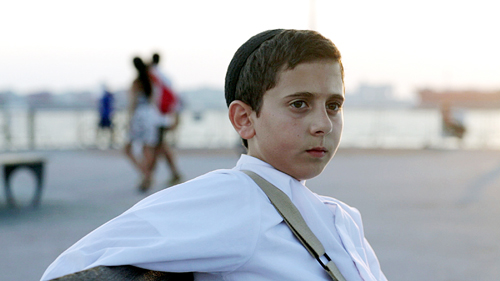As human beings, we have the choice to spend our finite time on this earth as we so desire. For example, right now I could be sleeping, but instead have chosen to embark on yet another narrative journey in writing this article—in exchange for money to feed my junk food, clothing and buying-a-hedgehog funds.
The pursuit of holiness

As human beings, we have the choice to spend our finite time on this earth as we so desire. For example, right now I could be sleeping, but instead have chosen to embark on yet another narrative journey in writing this article—in exchange for money to feed my junk food, clothing and buying-a-hedgehog funds.
We all know Thursday evenings can be dreadful because, being so tantalizingly close to Friday, all you want to do is nothing. But sometimes, doing something is even better, and your best choice would be to spend this Thursday at the Portland Art Museum’s Whitsell Auditorium enjoying a very special film in Northwest Film Center’s 20th Jewish Portland Film Festival called David (2011).
Directed by Joel Fendelman and Patrick Daly, David tells the story of a young Muslim named Daud (Muatasem Mishal), who lives with his extremely religious family in Brooklyn. The boy finds himself at a park one day and notices that a Jewish boy has left his holy book behind. Because he wants to perform an act of good faith, he decides to return the book to its owner.
Daud finds himself adopting the name David, going to school with Jewish children and forming strong friendships with them. Knowing that a friendship with a Jew is strongly frowned upon in his household, Daud begins to lead a complicated and confusing double life in which affection and friendship begin to take priority over his Islamic values.
This is a movie I wouldn’t normally choose to watch. And while I don’t believe you should judge a book by its cover, films are a different story. The DVD cover makes one think it’s the sort of film babysitters use to entertain eight year olds.
Don’t be fooled: The film is very mature indeed. Its story makes vivid how conservative, religious cultures deal with the diversity in their surroundings, and how much of an impact this type of cognitive dissonance can have on people like little Daud.
What I found most fascinating was that I could relate to this film, even though I am neither Muslim nor Jewish. I felt for the young boy and even his older sister, who experiences internal conflicts of her own. I became more aware of how people in different cultures live their lives and endure their struggles, and that I could take lessons from the film’s approach to intercultural relations.
Having said all that, if I really dissected the superficial layers of the film, it’s clearly not the best thing I’ve ever seen, cinematically speaking. The acting is serviceable. There’s no exceptional use of sound or photography (except for those images of sad little boys—gets me every time). Nor is there anything special about the way the story is told.
But if you are someone who, like me, enjoys becoming more aware of different ways of living in this vast salad bowl of a nation, then watch this film—you’ll appreciate its message. If you can make it past the first 10 minutes, which shows the viewer a day in the life of a Muslim boy, you shall not go unrewarded.






